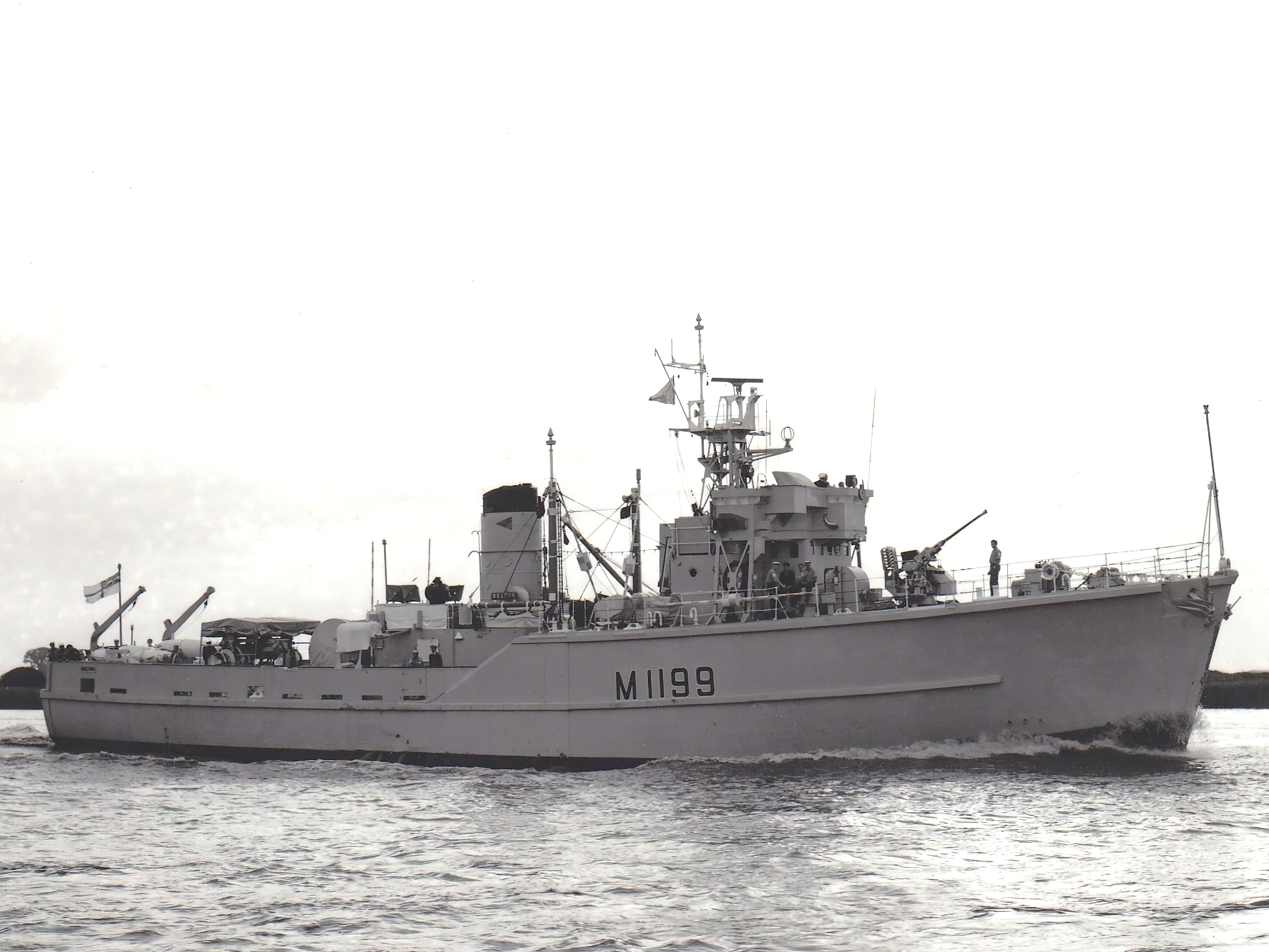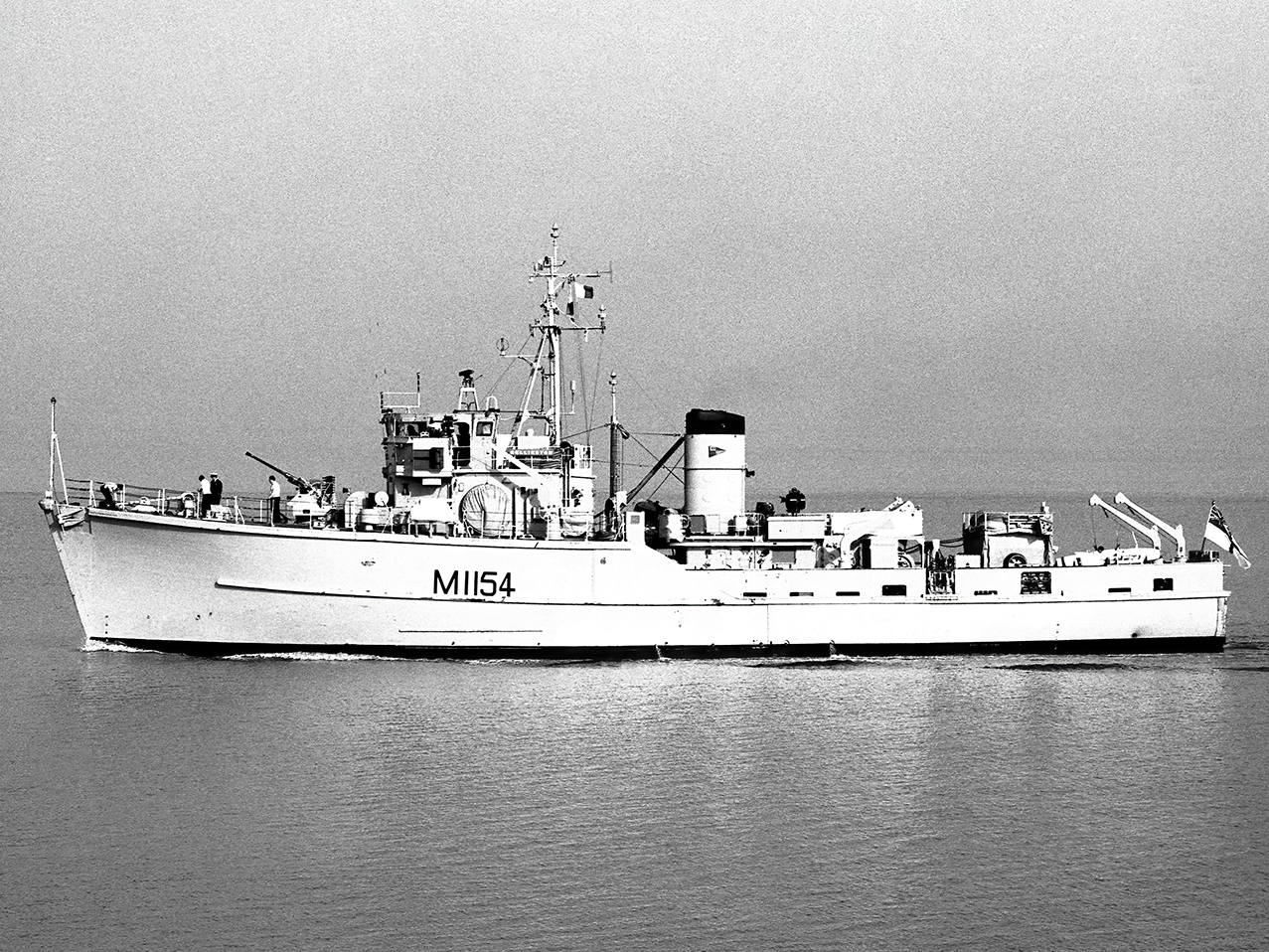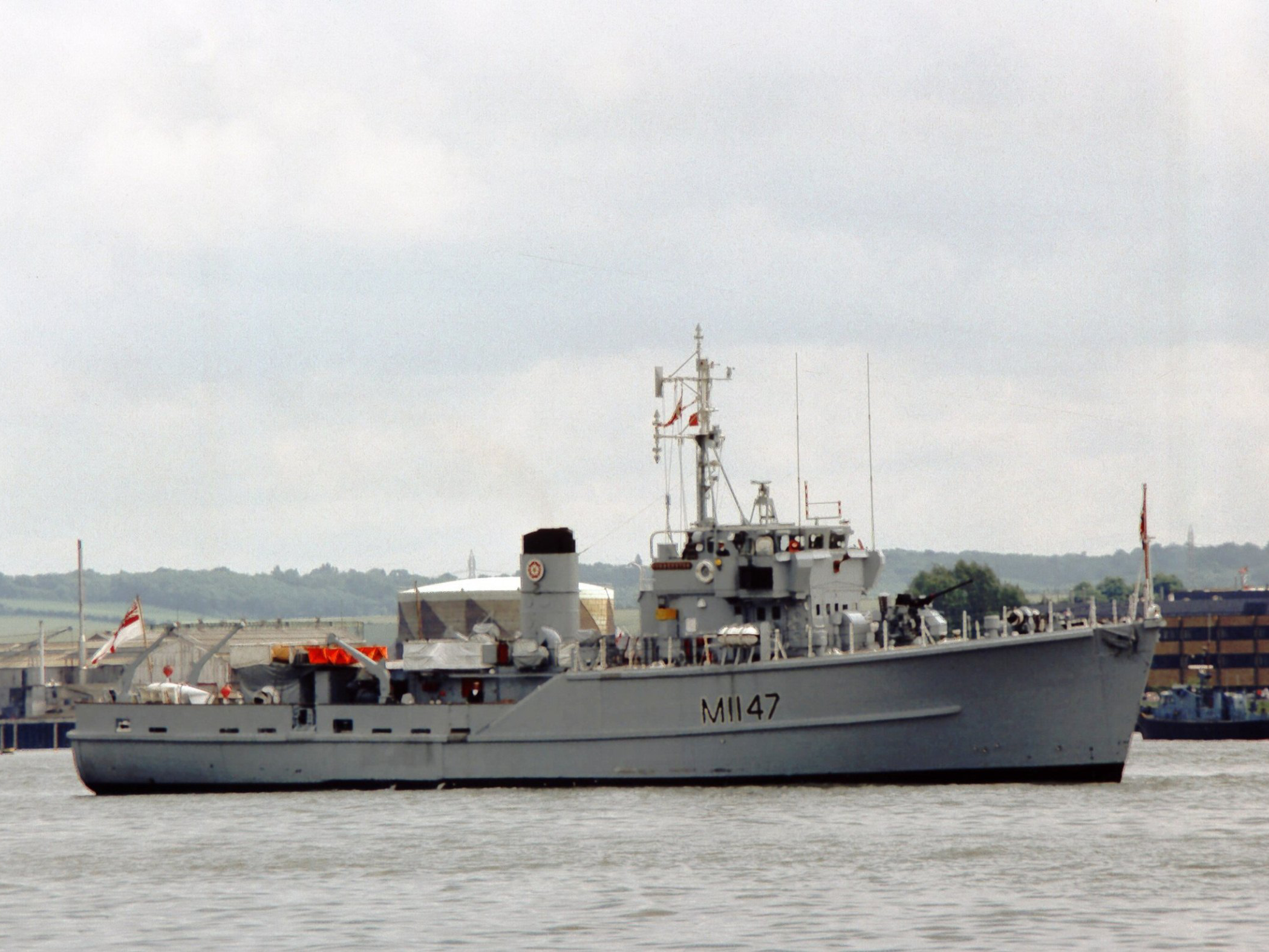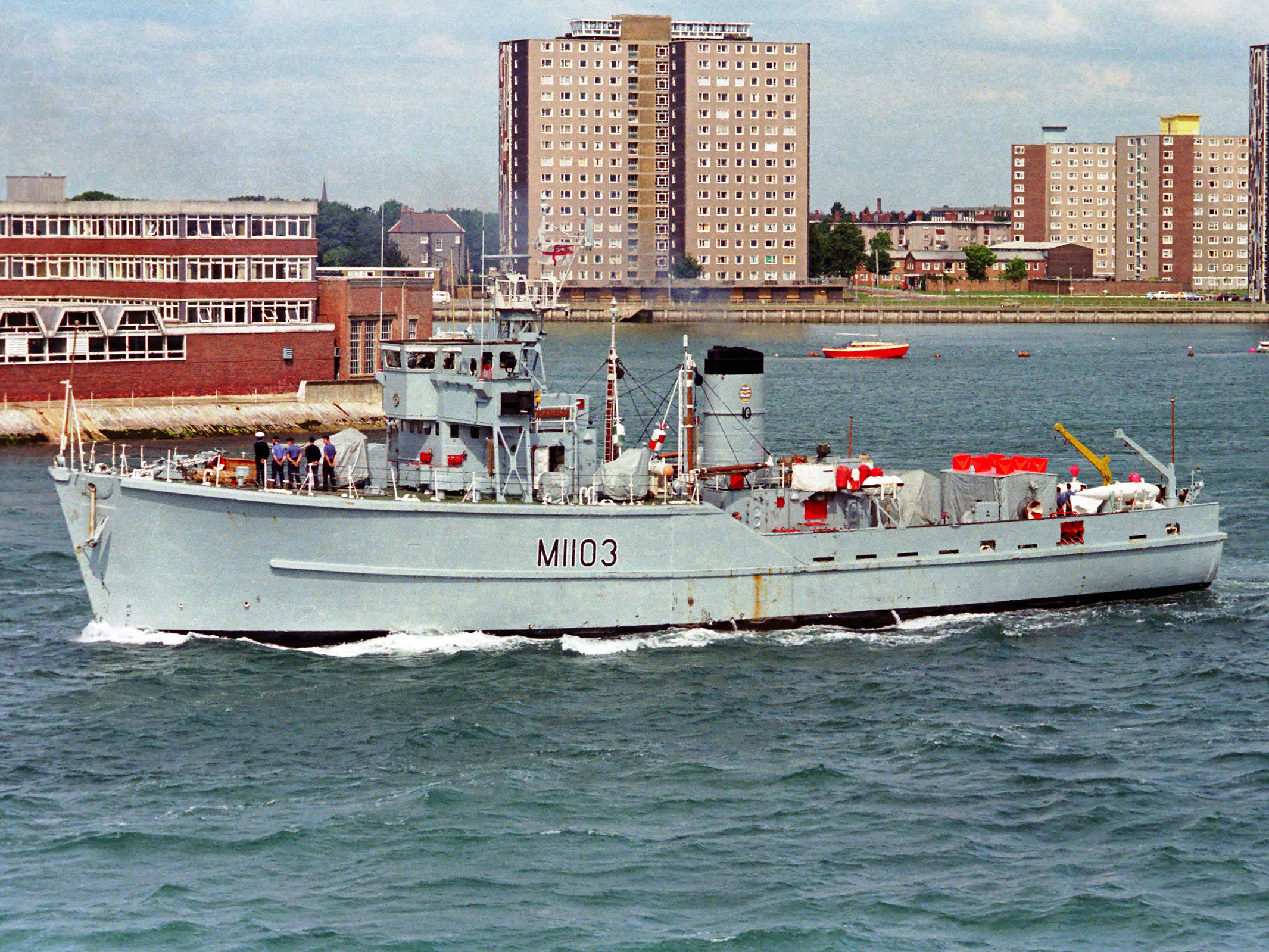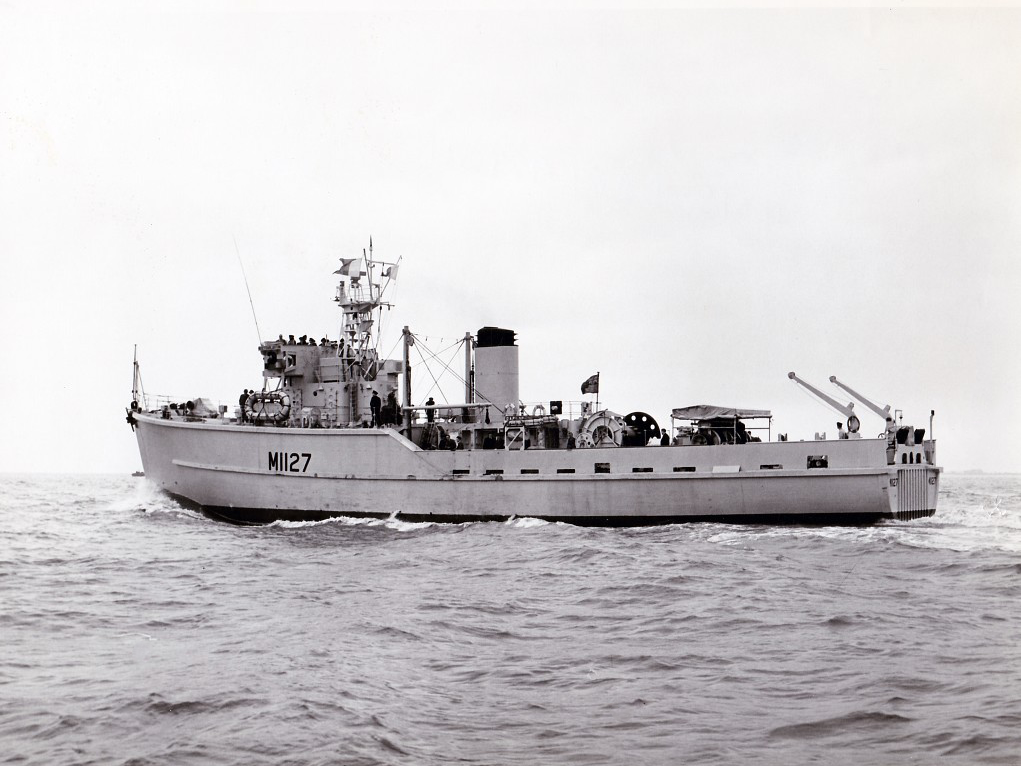Royal Navy Ton Class Minesweepers: A Comprehensive Guide
Introduction
The Ton class minesweepers were one of the most numerous and long-serving classes of vessels in Royal Navy history. Introduced in the 1950s during the early Cold War, these small wooden-hulled ships were designed to clear Soviet-laid mines from European and global sea lanes. Over 100 vessels were built for the Royal Navy and Commonwealth navies, serving not only in the minesweeping role but later adapted for patrol, minehunting and training. Some remained in service into the early 2000s.
Origins and Design Development
Following the Second World War, the Royal Navy recognised the need for a new generation of minesweepers to replace ageing wartime fleets. These new ships had to be suited to both coastal and deep-water operations, with a low magnetic signature to reduce vulnerability to magnetic mines.
The result was the Ton class, named after towns ending in “-ton” or “-ham”. They featured wooden hulls with aluminium superstructures and a relatively shallow draft. Their simplicity and low cost allowed for mass production, and by the end of the 1950s, over 100 had been built in British yards.
The original role was minesweeping using mechanical, magnetic and acoustic methods, but many were later converted into minehunters, using sonar and remotely operated vehicles to detect and destroy individual mines.
Design and Technical Features
Displacement: 360 tonnes standard, 440 tonnes full load
Length: 153 feet
Propulsion: 2 × diesel engines, twin screws, top speed 15 knots
Armament: Initially 1 × 40mm Bofors gun, some later carried GPMGs or Oerlikons
Sensors: Early models had minimal radar; later fitted with sonar and minehunting gear
Crew: Typically 33–40
Some vessels were later fitted with the Type 193M sonar, PAP remote-controlled vehicles, and updated command systems.
Service and Operations
Ton class vessels served around the world. Many were based in UK waters, the Mediterranean, and the Persian Gulf, where they supported British naval presence during the Cold War and in colonial conflicts.
Some notable deployments and duties included:
Cyprus Emergency
Cod Wars (support role)
Falklands exclusion zone patrols
Operation Rheostat (mine clearance in the Suez Canal)
Northern Ireland patrols in the 1970s and 1980s
Fishery protection, navigation surveys, and training
As newer mine countermeasure vessels like the Hunt and Sandown classes entered service, the Ton class was gradually withdrawn. However, many continued in use as training vessels, patrol boats, or were transferred to Commonwealth and NATO navies.
Variants and Conversions
While all ships were based on the same hull, many were modified for specific roles:
Minesweepers (MS): The original configuration
Minehunters (MH): Fitted with high-frequency sonar and mine disposal systems
Inshore Survey Craft: Used for hydrographic duties
Naval Reserve Tenders: Used for seamanship and navigation training
Overseas Sales: Transferred to navies such as South Africa, Malaysia, Nigeria, and Ireland
Summary – At a Glance
(Below is a representative selection of Ton class ships, listed in order of commissioning. Due to the large number of vessels, only notable or historically significant examples are included.)
|
Ship |
Commissioned |
Notable Service Highlights |
Fate / Status |
| HMS Tonbridge (M1202) |
1954 |
First of class, coastal minesweeping |
Decommissioned 1975 |
| HMS Yaxley (M1203) |
1954 |
Fishery protection, reserve training |
Sold to South Africa |
|
HMS Wilton (M1116) |
1955 |
First RN ship with glass-reinforced plastic hull |
Preserved as museum ship |
|
HMS Kirkliston (M1157) |
1955 | Minehunting conversion, NATO deployments |
Decommissioned 1985 |
|
HMS Bronington (M1115) |
1954 |
Commanded by Prince Charles, 1976 |
Preserved (awaiting restoration) |
|
HMS Hubberston (M1147) |
1955 |
Minesweeping and Northern Ireland patrols |
Decommissioned 1990s |
|
HMS Nurton (M1176) |
1956 |
Converted to patrol role, inshore operations |
Sold to Lebanon |
|
HMS Brereton (M1112) |
1956 |
Survey and patrol vessel |
Decommissioned 1991 |
|
HMS Maxton (M1164) |
1958 |
Survey and Royal Naval Reserve duties |
Decommissioned 1992 |
|
HMS Sheraton (M1150) |
1957 |
Middle East deployments |
Sold to Malaysian Navy |
Conclusion
The Ton class minesweepers served the Royal Navy faithfully for over four decades. Their adaptability, simple construction and reliable performance made them ideal for a variety of missions, from mine warfare to training and patrol. While they are no longer in frontline service, a few survive as museum pieces and training ships, a testament to one of the most successful small ship classes in Royal Navy history.




